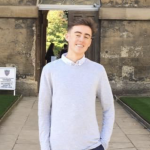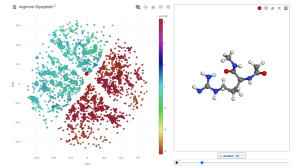Many undergraduate students at Imperial College London decide to complete a placement based in a department, at another university or with industry over the summer. These placements are organised by the student independently.
In the blog posts below, two of our students have shared more about their experiences this year.
Harry Hughes – Undergraduate Research Opportunity Placement in the Department of Materials
 Hi, I’m Harry! I am an incoming second-year undergraduate student studying Materials Science & Engineering at Imperial College London. I have recently completed a 10-week Undergraduate Research Opportunity Programme for the Engineering Alloys research group with Dr Stella Pedrazzini.
Hi, I’m Harry! I am an incoming second-year undergraduate student studying Materials Science & Engineering at Imperial College London. I have recently completed a 10-week Undergraduate Research Opportunity Programme for the Engineering Alloys research group with Dr Stella Pedrazzini.
The project investigated stress corrosion, cracking and pitting corrosion that austenitic stainless steels experience under various salt exposures; this will be used in the context of the dry fuel store campaign that EDF Energy is conducting.
The motivation to complete a placement within this field was to further build on my experiences of working within corrosion and oxidation. I have previously worked as an intern for a year within EDF Energy’s Chemistry & CO2 Oxidation group, where I helped research boiler oxidation kinetics in the current fleet of UK AGR power stations.
Any placement comes with its own set of challenges, and the UROP was not an exception. As the research was independently run by myself and another student, I had to formulate an experimentation plan with limited lab experience and knowledge of the subject area. Time management was also a key factor in the success of the placement – due to the pandemic, time spent in the laboratory was limited to only 15 hours a week. This meant I had to be smart with my time and plan ahead to complete the investigation within 10 weeks.
In all honesty, I wasn’t keen to complete research before the UROP. However, its independent nature led me to fundamentally enjoy my experience and has made me consider completing a PhD after my undergraduate degree. I have always been a person who enjoys leading projects, and this UROP has exposed me to this. Working with Imperial has also been very different to working with EDF Energy. The internship at EDF Energy was more structured by having stricter objectives, and for the most part, I completed smaller remedial tasks. Compared to the UROP, whilst having a final goal, I could pick and choose areas within corrosion that I could investigate, which I really enjoyed.
My advice to anyone who is thinking of completing a UROP? Look up which professors research areas spark your interest the most and contact them directly to see whether any positions are available within their group. Imperial College London’s Careers Service and your personal tutor are also useful tools you can use to seek out any potential placement opportunities.
I hope this post has given you an understanding of how a materials UROP takes place, alongside its challenges, and has inspired you to apply for one. Good luck!
Jakub Lala – Summer Placement at the École Polytechnique Fédérale de Lausanne
 This summer, I completed a 10-week placement at the École Polytechnique Fédérale de Lausanne, specifically in the Computational Sciences and Modelling Lab led by Michele Ceriotti. EPFL has several placement programmes available, and I applied through both the E3 Engineering Programme (deadline around January) and the Research Internship Programme (applications open in October).
This summer, I completed a 10-week placement at the École Polytechnique Fédérale de Lausanne, specifically in the Computational Sciences and Modelling Lab led by Michele Ceriotti. EPFL has several placement programmes available, and I applied through both the E3 Engineering Programme (deadline around January) and the Research Internship Programme (applications open in October).
During the first five weeks, I worked on a visualisation tool called Chemiscope, improving its website and implementing a Jupyter Notebook integration. For the rest of the internship, I worked on a PyTorch model to optimize coupling parameters, reducing the amount of elemental information required for material structure datasets, hence improving the learning rate of machine learning models afterwards. Having both of these aspects during the placement showed me the importance of both software engineering and actual modelling science in the arena of modelling computation.
Although this will vary depending on the lab, I am extremely grateful that my direct supervisor was a PostDoc, who was almost always available, meaning whenever I felt frustrated or I was stuck in terms of progress, he would easily step in and helped me with valuable guidance. Posing stupid questions to him was not an issue, giving me the potential to learn a lot and advance fast. On the other hand, when he went on a summer vacation, the internship highlighted that one also needs independence during work to develop the necessary problem-solving skills without someone senior fixing his problems for him.

This opportunity also allowed me to taste life in another country, especially the work and societal cultures. This not only gave me important insight that may become helpful once applying for future jobs or PhDs abroad, but it also widened my perception of global opportunities by demonstrating that it is conceivable getting involved in impactful work all around the world, in all sorts of fields. More importantly, by talking to PhDs or PostDocs in the lab, you get invaluable information that will help you decide on your future career. Personally, I realised that an academic career is definitely something I do not want to pursue, but going for a PhD interlinked with the industry might be somewhat lucrative and exciting.
If you are trying to find an internship, use the network you already have. By asking your current professors or researchers, either sending them an email or visiting their office, you are doing yourself a favour in the long run, as they can recommend you suitable labs, professors, or companies in whatever field you might have interest in. For instance, my former Imperial UROP supervisor recommended Michele’s lab as an interesting place to apply to, and then in a similar manner, Michele was kind enough to suggest a potential MIT supervisor for my future Master’s thesis.
To find out more about Undergraduate Placement Opportunities, visit the Department of Materials website.